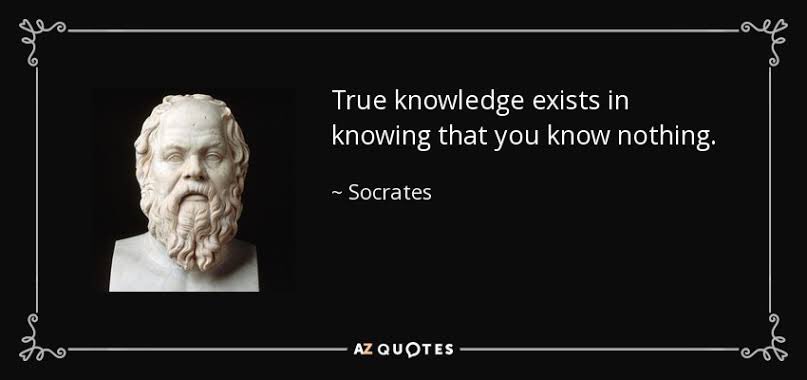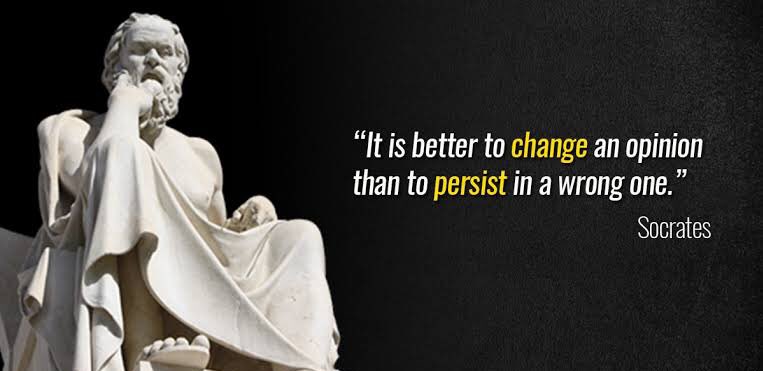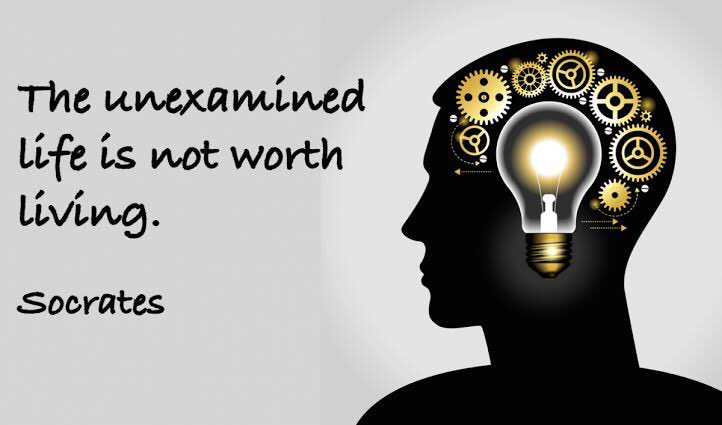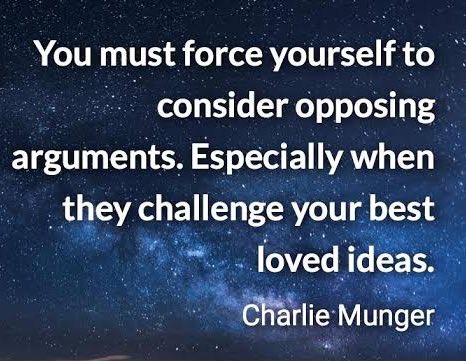How to use the Socratic method to improve your critical thinking
A 7-step guide
(Read thread)
A 7-step guide
(Read thread)
Introduction:
Socrates believed strongly in the admittance of one’s ignorance.
Doubt (aporia) as always been the hallmark of clear thinkers.
Socrates believed strongly in the admittance of one’s ignorance.
Doubt (aporia) as always been the hallmark of clear thinkers.
He also believed that individuals must seek truth for themselves by challenging conventions and asking the right questions.
He confused the wisest men in Athens through his elenchus (logical refutations).
He confused the wisest men in Athens through his elenchus (logical refutations).
His method of probing is known as the Socratic method.
This is a model for testing the validity of one’s beliefs so as to get a deeper understanding.
It can be used in a dialectical, or for self-examination (this thread focuses on the latter).
This is a model for testing the validity of one’s beliefs so as to get a deeper understanding.
It can be used in a dialectical, or for self-examination (this thread focuses on the latter).
1) Clarify Issue
Break the concept to its simplest explanations.
Ask yourself;
- What does ____ truly mean?
- What are its features?
- Does it have different meanings in different contexts?
- What are its antonyms?
Avoid giving automatic responses, investigate.
Break the concept to its simplest explanations.
Ask yourself;
- What does ____ truly mean?
- What are its features?
- Does it have different meanings in different contexts?
- What are its antonyms?
Avoid giving automatic responses, investigate.
2) Contemplate Assumptions
Identify any preconceived beliefs that may be clouding your judgement.
Resist your first conclusion bias, and belief perseverance tendencies.
Identify any preconceived beliefs that may be clouding your judgement.
Resist your first conclusion bias, and belief perseverance tendencies.
Ask yourself:
- What framework are my beliefs built upon?
- Is this a subjective opinion or an objective fact?
- Why have I adopted this assumption?
- Is my assumption sound?
- What counter assumptions should I be considering?
- What framework are my beliefs built upon?
- Is this a subjective opinion or an objective fact?
- Why have I adopted this assumption?
- Is my assumption sound?
- What counter assumptions should I be considering?
3) Seek Evidence
Ask yourself:
- Why am I so certain?
- Are there historical or experimental evidences to back this up?
- What is the quality of the evidence?
- Are there any reasons to doubt that?
Ask yourself:
- Why am I so certain?
- Are there historical or experimental evidences to back this up?
- What is the quality of the evidence?
- Are there any reasons to doubt that?
4) Seek Counter-narratives
Try to antagonize your own point of view.
This might be uncomfortable to do, but it is absolutely necessary for broadening your perspective.
Try to antagonize your own point of view.
This might be uncomfortable to do, but it is absolutely necessary for broadening your perspective.
You can also ask other people for their opinions, but maintain neutrality.
For example even if someone shares my view on a topic, I’ll often pretend to oppose them and use their arguments to update my P.O.V.
Highly recommend.
For example even if someone shares my view on a topic, I’ll often pretend to oppose them and use their arguments to update my P.O.V.
Highly recommend.
5) Consider Consequences
Mentally inverse the problem to consider its implications.
Ask yourself;
- Is this relevant or applicable in my life?
- How will this affect my moral conduct?
- Does this align with my ethics and values?
Mentally inverse the problem to consider its implications.
Ask yourself;
- Is this relevant or applicable in my life?
- How will this affect my moral conduct?
- Does this align with my ethics and values?
6) Cross-check Conclusions
Ask yourself;
- Is there a clear & definite closing to my cogitation?
- Is my conclusion probable or not?
- Is it logically & scientifically sound?
- Is it ethical or not?
- Is it falsifiable?
Ask yourself;
- Is there a clear & definite closing to my cogitation?
- Is my conclusion probable or not?
- Is it logically & scientifically sound?
- Is it ethical or not?
- Is it falsifiable?
For starters I recommend writing out your thoughts.
This will help you connect ideas better and to see the full picture.
With practice this can be done spontaneously and effortlessly.
This will help you connect ideas better and to see the full picture.
With practice this can be done spontaneously and effortlessly.
7) Remain doubtful
Certainty kills curiosity, and confidence kills clarity.
It’s less about becoming absolutely right, and more about becoming less wrong.
Question everything - doubt everyone, doubt your knowledge, doubt your doubt.
The important thing is to keep learning.
Certainty kills curiosity, and confidence kills clarity.
It’s less about becoming absolutely right, and more about becoming less wrong.
Question everything - doubt everyone, doubt your knowledge, doubt your doubt.
The important thing is to keep learning.
100MM contains over 50 books and mental models from some of the world’s best thinkers.
Highly recommend https://abs.twimg.com/emoji/v2/... draggable="false" alt="👇🏾" title="Rückhand Zeigefinger nach unten (durchschnittlich dunkler Hautton)" aria-label="Emoji: Rückhand Zeigefinger nach unten (durchschnittlich dunkler Hautton)"> https://bit.ly/31JN87o ">https://bit.ly/31JN87o&q...
https://abs.twimg.com/emoji/v2/... draggable="false" alt="👇🏾" title="Rückhand Zeigefinger nach unten (durchschnittlich dunkler Hautton)" aria-label="Emoji: Rückhand Zeigefinger nach unten (durchschnittlich dunkler Hautton)"> https://bit.ly/31JN87o ">https://bit.ly/31JN87o&q...
Highly recommend

 Read on Twitter
Read on Twitter





